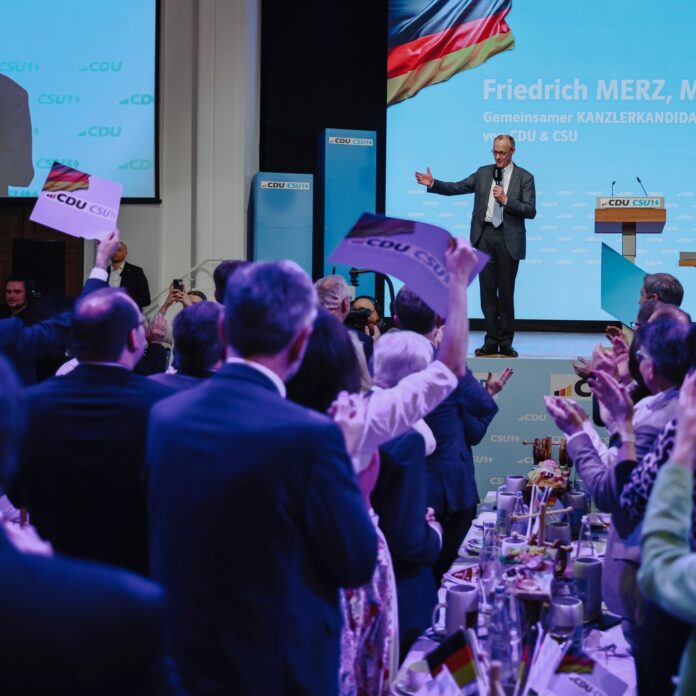Germany’s centre-right Christian Democrats (CDU) leader, Friedrich Merz, has expressed gratitude after he received messages of best wishes following a tough parliamentary election at the weekend.
Merz said this as US President Donald Trump recently bypassed the EU and Ukraine to negotiate a peace deal with Russia. The deal is meant to stop Russia’s attack on Ukraine.
“We live in a time of great challenges and crises. I was very pleased to receive congratulations from Germany and abroad,” said Merz in a post on X.
“Together with our allies, Germany will make a contribution to freedom and security in the world.”
The result paves the way for the conservative leader to be the next chancellor of the EU’s biggest economy and succeed Social Democrat Olaf Scholz, depending on the outcome of coalition talks.
Bitter election result
Merz’s CDU and its Bavarian sister party, the Christian Social Union, are forecast to win between 28.6% and 28.9% of the vote, according to initial projections.
“I am aware of the responsibility,” Merz told supporters in Berlin on Sunday, claiming a mandate to lead the next German government. “I know that it will not be easy.”
The far-right Alternative for Germany surged to between 19.9% and 20.1% in the preliminary results, a major boost in support for the hardline anti-immigration party compared to the 10.4% it won in the 2021 election.
Scholz’s SPD is set to suffer a long-expected defeat, tumbling to third place with 16.2% to 16.3% in the projected results, the worst showing in a national election in decades for the party.
“This is a bitter election result for the Social Democratic Party, and it is also an election defeat,” the chancellor told members of his centre-left SPD on Sunday evening as initial results came in, which pointed toward the party’s worst showing in a national election in decades.
The key question after the final results come in will therefore be what coalition options are available — and just how long it will take to assemble Germany’s next government.
Next chancellor faces challenges
The election comes at a pivotal time for the EU’s most populous nation, which is in the midst of its longest recession in more than two decades after two straight years of declining gross domestic product.
Households are still feeling the after-effects of high inflation, which hit Germany badly after Russia’s 2022 full-scale invasion of Ukraine, while a growing number of high-profile companies are weighing layoffs and other austerity measures.
Trump’s threats of tariffs on the EU, his loud demands for greater defence spending from European North Atlantic Treaty Organisation allies, and his push to cut a deal over Ukraine with Russia will all demand a serious response from the next German chancellor.
On Sunday evening, Merz posted on X: “My impression over the last few days is that Russia and America are finding common ground — over the heads of the #Ukraine and thus also over the heads of Europe.
“That is why everyone is now looking at Germany. How quickly will the Germans be able to form a government after this complicated election result? That is really my priority now,” wrote Merz. – dpa and Sunday World



